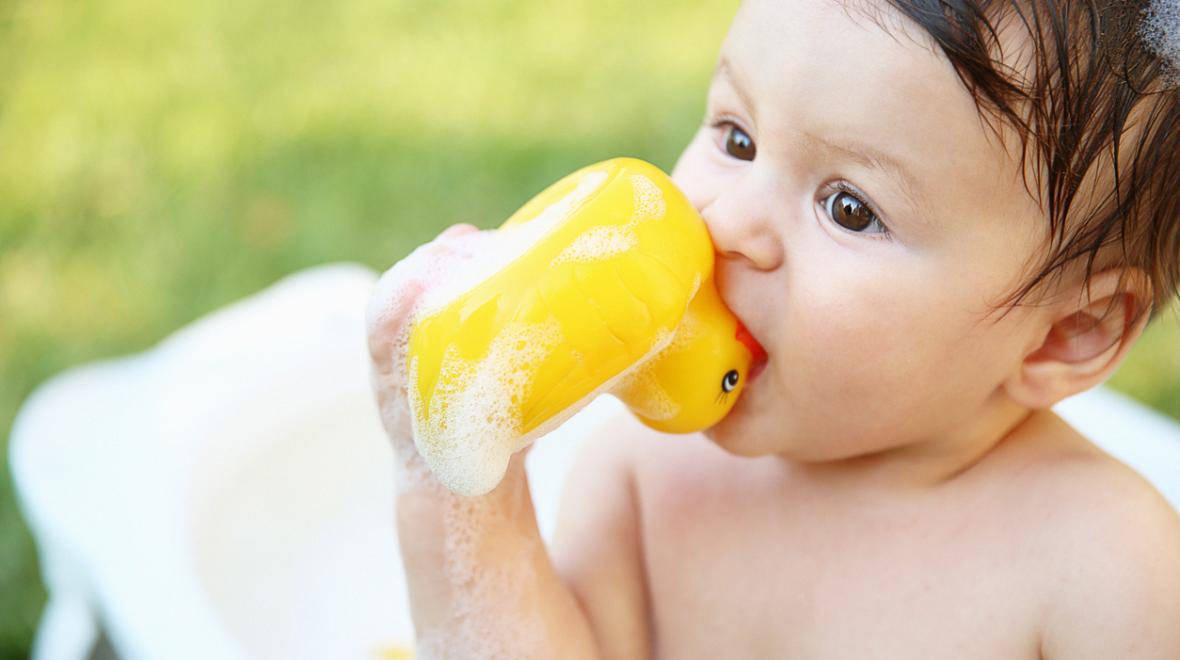
I had a wonderful childhood; I always felt safe and loved. But looking back, things were so different when my parents were raising me.
I’m not sure car seats were ever rear-facing; I definitely can’t remember sitting in a booster seat or even seeing one. In fact, when I was about 5, my dad took me for a drive in his old Ford truck on the frozen lake in our town.
The practice of driving a one-ton truck on the frozen lake has since been outlawed, and so have a whole slew of baby practices our parents thought were totally normal when they were raising little ones.
These are a few baby products that are no longer safe — some of them might surprise you.
Teething gel
In 2016, the Federal Drug Administration (FDA) recommended that parents cease using and dispose of teething gel, because of the risk of “seizures, difficulty breathing, lethargy, excessive sleepiness, muscle weakness, skin flushing, constipation, difficulty urinating, or agitation after using homeopathic teething tablets or gels.”
The relatively new product category hasn’t been evaluated by the FDA; moreover, the administration reports that teething related pain can and should be managed without prescription or even over-the-counter medications.
Rubber ducks
We all have fond memories of Ernie and his rubber duckie, and, in fact, most of us still drop one into the bathtub with our babies. However, that rubber duck is likely to be harboring bacteria, as reported recently by The New York Times.
A study by the Swiss Federal Institute of Aquatic Science and Technology, ETH Zurich and the University of Illinois found “75 million cells of bacteria per square centimeter in the ducks — a strikingly high level that scientists say was a result of their polymer material releasing carbon, which acts as a nutrient for bacteria.”
Yuck.
Talcum powder
Talcum powder used to be a common remedy for painful diaper rash, but it turns out it can cause damage to little lungs. Baby Centre reported that the risk of damage from inhalation of talcum powder really only occurs when babies accidentally get into a bottle of talcum powder and inhale a large amount, but nonetheless, fatalities have occurred.
The site suggests: “Don’t sprinkle the talc directly onto your baby” but instead sprinkle it onto your own fingers and then dap it onto your child. When you’re finished, keep it well out of reach.
Walkers
When your baby starts to wiggle and crawl, there’s a temptation to stock up on gear that can allow your baby more mobility. Walkers that allow your baby to roll along under their own power can actually be very dangerous, according to the American Academy of Pediatrics (AAP).
Babies can easily slip down stairways or into pools in walkers, and to add insult to injury, walkers can actually delay walking development in babies instead of encouraging it. In fact, the AAP recommended a ban on the manufacture and sale of them “because data indicate a considerable risk of major and minor injury and even death from the use of infant walkers, and because there is no clear benefit from their use."
Unfortunately, baby products don’t get eliminated from the market that easily. Many of us still use these items and are unaware of the safety concerns.
Now that you know about the dangers, make sure to warn a friend or grandparent as well.











